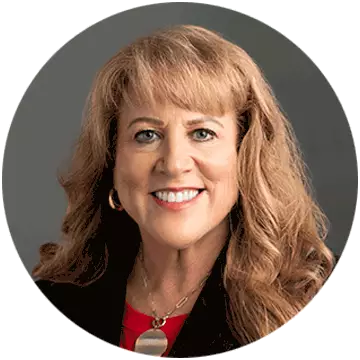How to become a music teacher

Written by Michael Feder

Reviewed by Pamela M. Roggeman, EdD, Dean, College of Education

For those passionate about music, there is one career option that may be of interest--teaching music. In addition to sharing an enthusiasm for playing, composing or performing, there is also the experience and rewards of helping others discover a love of music and hone their skills.
Qualifications to become a music teacher
Becoming a music teacher helps others while spending an entire day working with a subject and “specials”, whether it’s music, math, history or science. Education is a good way to merge a job with a passion.
It may be exciting to embark on this rewarding career, but also leave an individual wondering if a degree or licensing requirements will put this dream out of reach.
The qualifications for this role can vary depending on the location, school level and employer. While the ability to communicate the nuances of a subject will always be needed, in some cases skill and knowledge are enough to find employment. However, advanced degrees may be necessary for more formal settings, such as high schools or universities.
Here is a closer look at what it takes to become a teacher who has a passion to go further.
What do music teachers do?
Music education is a broad field that includes everything from private piano teachers to high school music instructors to directors of a music program at a major performing arts college. In all these cases, instructors teaching music are expected to have an expert understanding of the subject or instrument they teach. If they teach a specific instrument, the teacher is typically expected to play it themselves at a very high level.
Even though providing basic lesson plans and instruction is expected just like for every other teacher, there are significant differences between those who offer private lessons and those who work in schools.
Private music teaching vs. school music teaching
Regardless of whether a teacher gives private lessons or works for a school, they have the same basic duties. All teachers need to be able to assess their students’ ability and plan lessons that improve and understanding. They also need a high level of knowledge of their instrument or musical subject to convey information to students.
Since most music students make incremental improvements, these positions also require an abundance of compassion, patience and the ability to provide encouragement.
This is where the similarities between different music teaching jobs end, however. Those who work for private music schools or companies providing music lessons, or as music tutors, usually work one-on-one with students or in small groups. The focus is on developing skills in a specific instrument and the lessons focus on playing that instrument.
Many private teachers choose to work part time or are self-employed, so they typically do not receive employment benefits or work under a contract.
Teaching in a school is different from private teaching. Firstly, school jobs are typically full time and offer employee benefits, and some could have contracts that measure job stability. Though school teachers can sometimes provide one-on-one instruction, they usually teach in a classroom, working with groups of students.
Do you need a degree to teach music?
Though the teaching profession is broad, a specials teacher, such as in music, can be broken down into three distinct categories: elementary and high school (K-12), university and college instructors and private music teachers. Becoming a music teacher depends on the requirements of the particular career path, skill and experience. However, there are specific steps every teacher needs to follow for this career path.
- The first step for many specials teachers is typically to master the chosen specialty, either through formal instruction or informal practice. For example, a teacher chooses an instrument, genre or style of music. Many music educators have performance experience. This can occur through school bands, orchestras, choirs or recitals or as a professional musician arranging performances independently. Many private instructors could have experience as performers in their chosen genre or as studio musicians (or both).
- Teachers need to learn the methods necessary to plan lessons, assess student abilities and teach skills in a way that students understand. As a specials teacher in music, these abilities can be gained by volunteering to provide music lessons or working part time as a tutor. To gain experience, offer lessons for free to friends or neighbors to get started.
- The final step for those who want to work at a school or college is to obtain a bachelor’s degree and teaching certification or license.
- Postsecondary teachers can build on their bachelor’s with a Master of Fine Arts, a Master of Education or a doctorate in their chosen field.
Education requirements
The education requirements vary between the three types of music education. And not all music teachers may even need a degree. However, most who work in a school will need at least a bachelor’s degree, and college-level instructors may need a graduate degree. After earning the required degree, it is typical to apply for a state teaching certificate.
Here is a look at the educational requirements for a music teaching job:
- According to the U.S. Bureau of Labor Statistics (BLS), K-12 teachers, which includes elementary, middle and high school, typically need a bachelor’s degree in education or their chosen subject of instruction, like math or science. For example, a music instructor might need a bachelor’s in music, music theory or a related subject. A bachelor’s degree is required for public school teachers and a state-issued teaching certification or license, which usually includes additional courses and exams.
- At the college and university level, instructors typically need an advanced degree in education or their respective field, per BLS. Some community and technical school instructors can find jobs with a master’s degree. However, many professors who work at four-year universities typically need a PhD for employment.
- BLS does not provide education requirements for private teachers, but they may not necessarily need a degree, especially if self-employed or if they don’t work for an education provider. They do need to have mastery of the instrument or subject they teach.
University of Phoenix (UOPX) does not teach music or provide a specific aligning degree that leads to a career as a music teacher. However, UOPX’s online education degrees lead to teaching careers in certain states, and starting there can potentially help musicians develop skills to lead a classroom, develop lesson plans and maintain general educational standards in the classroom.

ABOUT THE AUTHOR
A graduate of Johns Hopkins University and its Writing Seminars program and winner of the Stephen A. Dixon Literary Prize, Michael Feder brings an eye for detail and a passion for research to every article he writes. His academic and professional background includes experience in marketing, content development, script writing and SEO. Today, he works as a multimedia specialist at University of Phoenix where he covers a variety of topics ranging from healthcare to IT.

ABOUT THE REVIEWER
As dean of the University of Phoenix College of Education, Pamela Roggeman has spent over a decade in higher education teacher preparation in both the public and private sector. Her experience has included national partnerships that help to advance thought leadership in the field of education. Dr. Roggeman also serves as the President of the Arizona Educational Foundation’s Board of Directors.
This article has been vetted by University of Phoenix's editorial advisory committee.
Read more about our editorial process.


